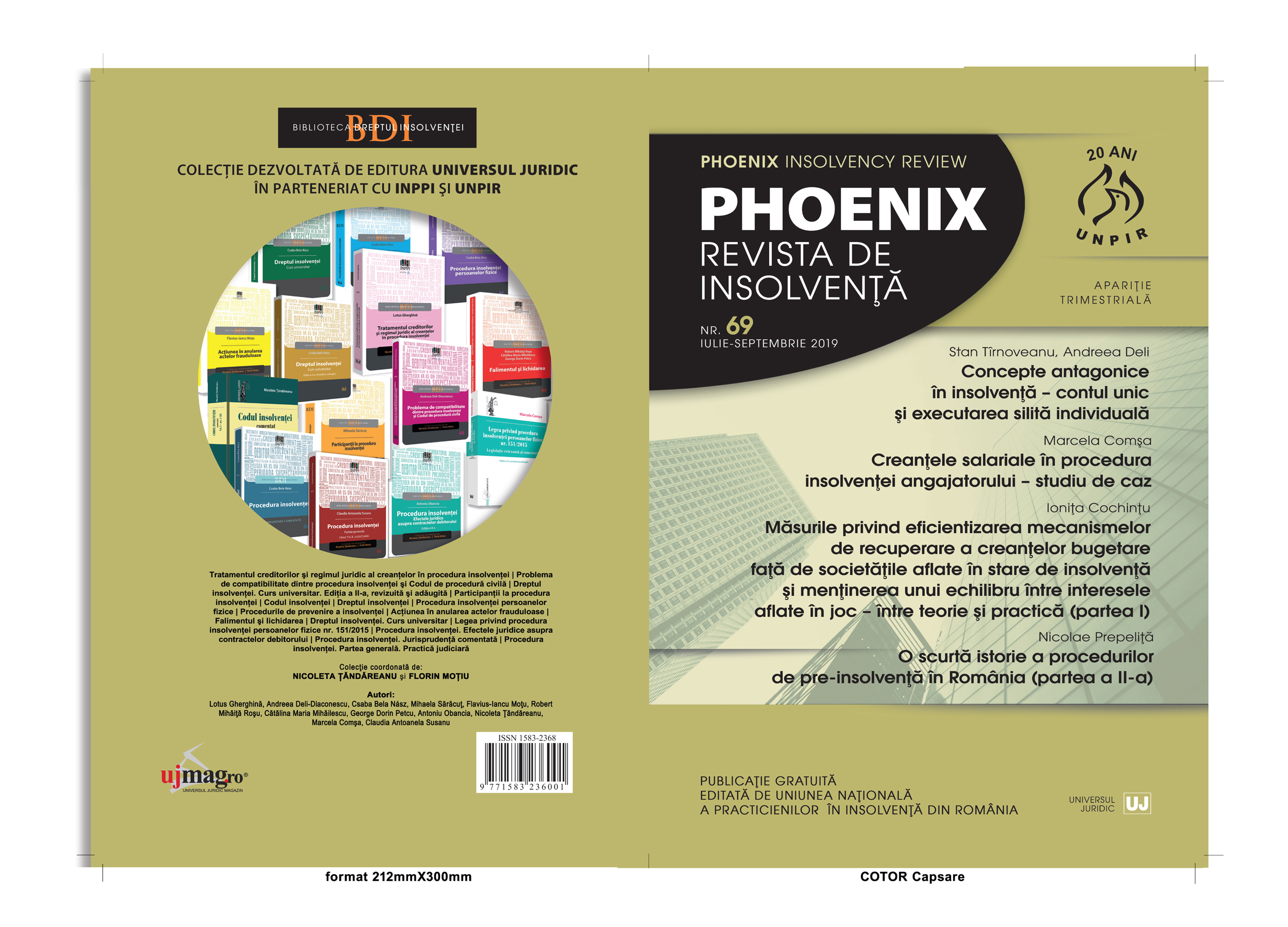MĂSURILE PRIVIND EFICIENTIZAREA MECANISMELOR DE RECUPERARE A CREANȚELOR BUGETARE FAȚĂ DE SOCIETĂȚILE AFLATE ÎN STARE DE INSOLVENȚĂ ŞI MENȚINEREA UNUI ECHILIBRU ÎNTRE INTERESELE AFLATE ÎN JOC – ÎNTRE TEORIE ŞI PRACTICĂ (PARTEA I)
MEASURES TO INCREASE THE EFFICIENCY OF STATE BUDGET RECEIVABLE COLLECTION FROM INSOLVENT COMPANIES WHILE MAINTAINIG BALANCE BETWEEN THE INTERESTS OF ALL PARTIESAND PRACTICE (PART I)
Author(s): Ioniţa CochinţuSubject(s): Law, Constitution, Jurisprudence, Civil Law
Published by: Universul Juridic
Keywords: budget receivables; financial contributions; insolvency; the recovery of the companies; constitutional review; the interests of all parties; the principle of proportionality;
Summary/Abstract: The evolution of insolvency legislation has taken into consideration, among other things, the recovery of state budget receivables from insolvent companies, an aim noted in Government Emergency Ordinance no. 88/2018 amending normative acts regulating insolvency and other normative acts. The Ordinance holds a primary goal in the instatement of measures for better mechanisms in the collection of state budget receivables, while also maintaining chances for the recovery of the debtor. However, given the differences between theory and practice, there are different approaches in the interpretation and application of this law. These differences in approach have generated litigation in courts, followed by the invocation of exceptions of unconstitutionality. As shown on the website of the Constitutional Court, exceptions raised refer to Government Emergency Ordinance no. 88/2018 in its entirety, as well as individual provisions included in this act, as well as Law no. 85/2014. Therefore, in the first part of this article, we consider aspects related to the context and vision employed by the legislator when generating such legislative measures, preceded by a presentation of several arguments of principle resulting from the casework of the Constitutional Court and the European Court of Human Rights, regarding the financial obligations of citizens, including legal entities, in comparison with the extent to which states have enacted such measures, including related to insolvency. In the second part of the article we will present the principles used by the constitutional contentious court when looking at the unconstitutionality exceptions raised.
Journal: Revista de Insolvenţă Phoenix
- Issue Year: 69/2019
- Issue No: 3
- Page Range: 20-22
- Page Count: 3
- Language: Romanian

